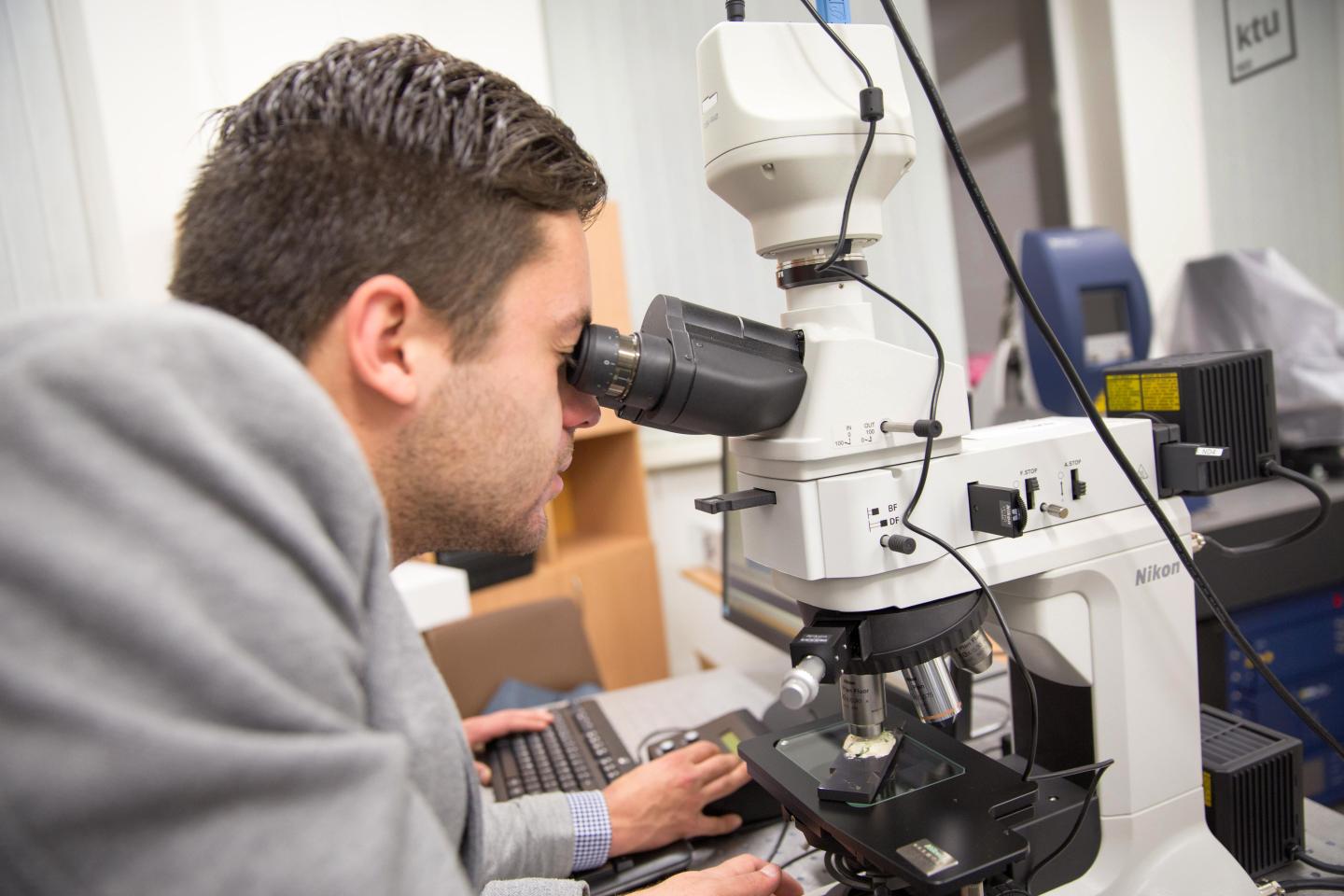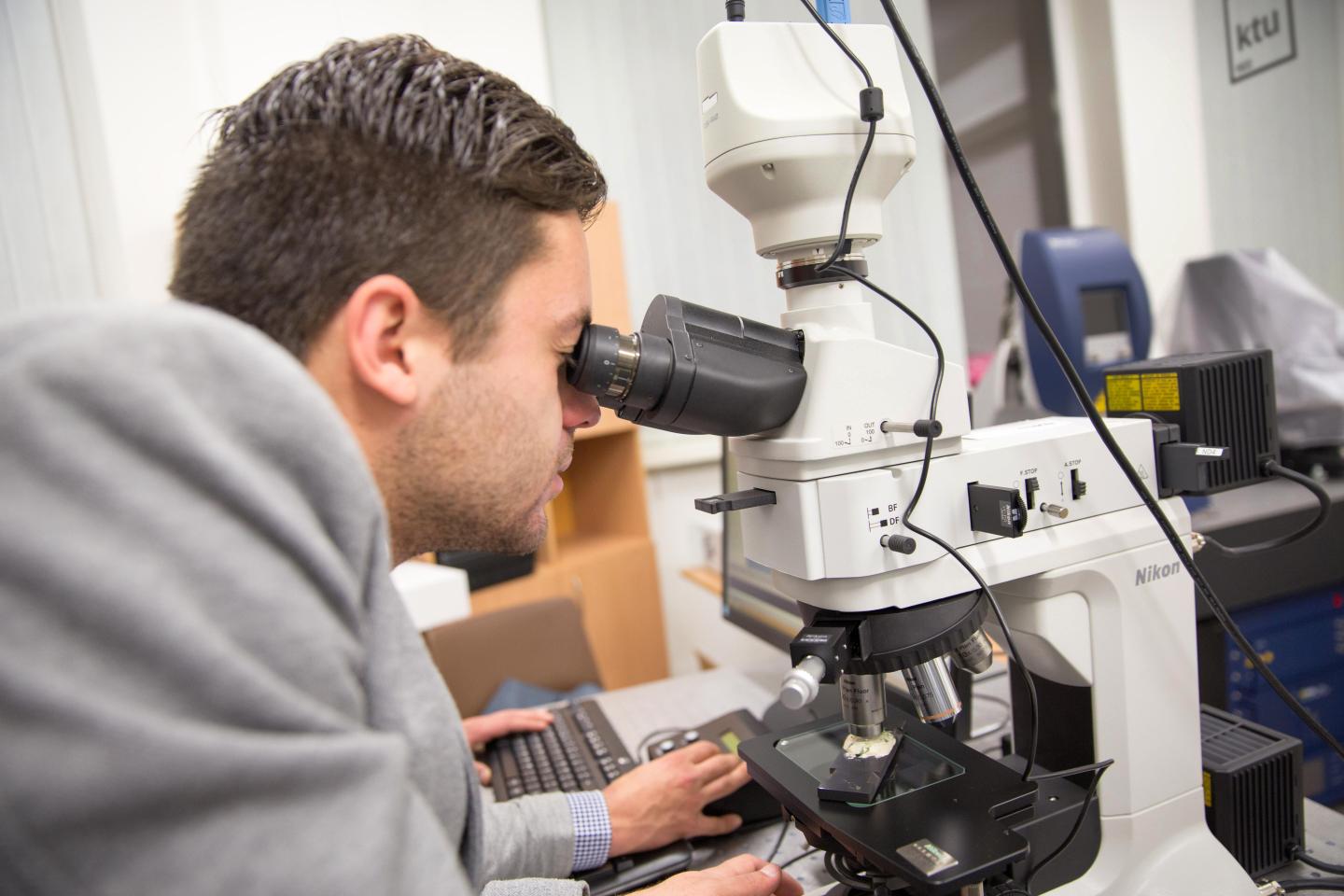
Credit: KTU
The team of researchers at Kaunas University of Technology, Lithuania are developing mathematical methods which could help diagnose breast cancer. Applying deep learning method, the researchers are aiming to "teach" computer to recognise malignant lesions, which would allow at least partially automatize and enhance the accuracy of diagnosing breast cancer.
In 2014, around 93.5 thousand people died from breast cancer in the EU, the vast majority (92.5 thousand) of them were women. Among women, breast cancer accounted for 3.7 % of all deaths. According to the World Health Organisation, more than 1 million new breast cancer cases are being diagnosed every year. The international community of medical professionals is warning that the incidence of oncological diseases is rising; in the last 15 years in Lithuania the cancer rate increased by 75%.
For better treatment and prognosis of cancer patients, early diagnosis is the key.
"Often in cancer diagnosis oncologists rely on visual information – the image of the tissue in question is being analysed in order to determine the nature of the lesions. This process is time consuming and the probability of mistake is not eliminated, which, in the case of cancer can be fatal. By developing mathematical methods for cancer diagnosis we aim to at least partially automatize the diagnosing procedure and to minimize the occurrence of mistakes", says Dr Tomas Iešmantas, postdoctoral researcher at Kaunas University of Technology (KTU).
For diagnosing breast cancer, he has adapted capsule neural network method introduced by the British researcher Geoffrey Hinton, one of the founding fathers of deep learning (machine learning method).
Dr Iešmantas, together with his postdoctoral research supervisor Professor Robertas Alzbutas, have analysed 100 microscope images of breast tissue provided by the University of Porto, Portugal. There were 4 types of images in the sample: those of non-cancerous tissue, of non-malignant tumour tissue, of non-invasive and invasive carcinomas. The aim of the investigation was to design a mathematical method for classifying the images into the 4 types mentioned.
"The early results are very promising – we have achieved 85% accuracy rate", says KTU researcher.
He will introduce the results of the research in the 15th International Conference on Image Analysis and Recognition in Portugal. According to Dr Iešmantas, although the ways of application of mathematical methods in medicine have expanded in recent years, and computers are being taught to diagnose lesions in lungs, to recognise metastasis in lymph nodes, and to localise brain tumours, it is not very likely that cancer diagnosing process will become fully automatized in the near future.
"The research is not only conducted on theoretical level, there are some cases where these methods have already been applied in clinical practice. Even though digitalisation will not replace human judgement, I believe that automatized computer diagnosis will become more common with time and will help to more accurately identify and diagnose certain types of cancer", says Dr Iešmantas.
###
Media Contact
Aldona Tuur
[email protected]
370-612-55857
@ktunews
Original Source
https://en.ktu.edu/news/mathematical-methods-for-diagnosing-breast-cancer/





